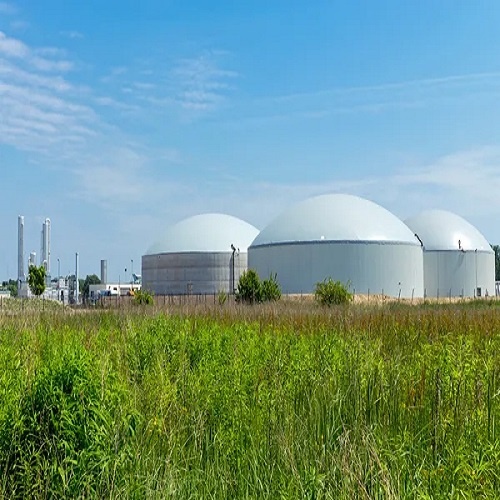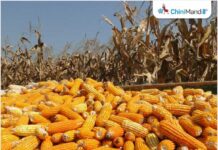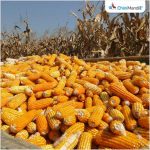The Department of Drinking Water and Sanitation (DDWS), Ministry of Jal Shakti has introduced a Unified Registration Portal for GOBARdhan (gobardhan.co.in) to streamline the registration of Compressed Bio-Gas (CBG) and biogas plants nationwide. The DDWS, being the Nodal Department for GOBARdhan, announced that over 1163 biogas plants and 426 CBG plants have successfully registered on the portal to date. These registered CBG/Biogas plants are eligible for assistance under the Market Development Assistance (MDA) scheme of the Deptt. of Fertilizers, Ministry of Chemicals & Fertilizers.
According to the guidelines, MDA of Rs. 1500/MT will be granted for the sale of Fermented Organic Manure (FOM)/ Liquid Fermented Organic Manure (LFOM)/ Phosphate Rich Organic Manure (PROM) produced at BG/CBG plants under the GOBARdhan initiative. Registration of manufacturing plants on the Unified GOBARdhan portal of the DDWS and adhering to Fertilizer Control Order (FCO) specifications for organic fertilizers are pre-requisites for MDA eligibility.
Manufacturing units registered under the Unified registration portal for GOBARdhan can market FOM/LFOM/PROM (co-products of CBG/Biogas plants) through Fertilizer Marketing Companies in packed form or independently in packed form, bulk, or both. Manufacturing plants are allowed to market FOM/LFOM/PROM in bulk/loose form for two quarters (October 2023 to March 2024) on an experimental basis. Quality testing of the manure will be carried out at Government-notified laboratories/NABL accredited private labs.
Department of Fertilizers, Ministry of Chemicals & Fertilizers has rolled out the MDA scheme, with focused guidelines to promote production and uptake of organic fertilizers from Galvanising Organic Bio-Agro Resources Dhan (GOBARdhan) plants.
The MDA scheme has been launched with a robust budget of Rs. 1451.82 Crore spanning three years (FY 2023-24 to FY 2025-26) to promote production and take-up of organic fertilizers generated from GOBARdhan plants inter alia, promoting sustainable/organic agricultural practices throughout the country. Its objective is to drive the widespread adoption of organic manure, ushering in savings for rural households by cutting down reliance on chemical fertilizers/urea. Bio-slurry, has potential to rev up acreage under organic farming and consequent monetary benefits to farmers. The MDA component is also a leveler, ensuring that organic fertilizer producers and farmers play on a fair field. It champions Integrated Nutrient Management, curbing chemical fertilizer overuse.
On the CBG/Biogas plant front, the MDA scheme is a massive booster shot for the sector. As India gears up to meet INDC/climate targets and achieve net-zero commitments, the scheme guarantees the financial health of CBG plants, making them magnets for private investments. Successful FOM/LFOM marketing also in-stills confidence in banking institutions, easing the loan process. For entrepreneurs and private investors, monetizing this co-product accelerates the long-term viability of plants and beckons new players to the burgeoning CBG/Biogas sector.
GOBARdhan, a trailblazing multi-ministerial initiative, is on a mission to transform biodegradable and organic waste, including cattle dung, agricultural residues, and biomass, into high-value resources like biogas, CBG and organic manure. This visionary “Whole of Government” approach not only ushers in the era of high-value Biogas/CBG production but also harnesses the power of bio-slurry – a FOM that turbocharges soil health, carbon content and water retention capacity. When used in conjunction with chemical fertilizers, bio-slurry promotes judicious fertilizer use, slashing urea imports and championing sustainable agriculture. From an economic standpoint, GOBARdhan empowers farmers with organic manure, putting the brakes on their dependence on pricey chemical fertilizers.
Key enablers have played pivotal roles in catapulting the GOBARdhan initiative to new heights, viz. standardizing bio-slurry, RBI’s inclusion of CBG plants in Agri Infrastructure Fund (AIF) as well as Agriculture Infrastructure and Development Fund (AHIDF), recalibration of CBG plant categories by the Central Pollution Control Board (CPCB), revisions in the categorization of CBG plants based on feedstock type and wastewater discharge by the Central Pollution Control Board (CPCB) and the revival of the Waste to Energy Scheme of the Ministry of New and Renewable Energy (MNRE) etc. The most recent and critical addition to these enablers is the introduction of the MDA scheme for organic fertilizers produced under GOBARdhan plants.
In a nutshell, the MDA scheme launch aligns perfectly with the twin objectives of efficient organic waste management and bolstering soil organic carbon in agricultural soils, creating fertile ground for organic farming.
Through a combination of existing and forthcoming policy enablers in the Biogas/CBG space, the government’s ultimate vision is to expand the reach, awareness, and implementation of Biogas/CBG plants, transforming the sector into a magnet for private sector investments.
For more information, please visit https://www.fert.nic.in/
(Source: PIB)












